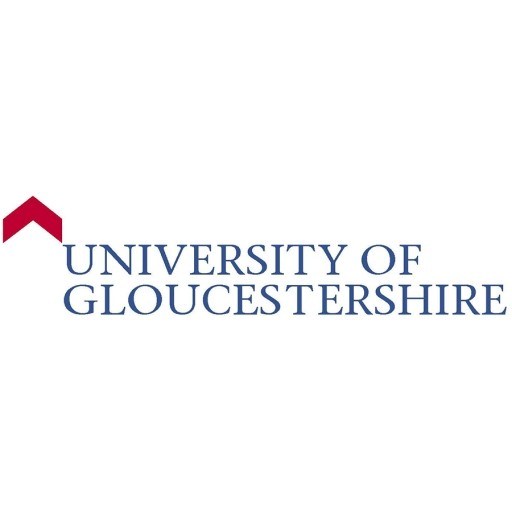Photos of university / #unikentlive
History and Philosophy of Art and Film at the University of Kent offers an interdisciplinary approach to understanding visual culture, combining rigorous analysis of historical developments with critical engagement in philosophical debates. This programme is designed for students passionate about exploring the rich heritage of art and cinema, examining their historical contexts, aesthetic qualities, and philosophical questions. Students will study a broad range of topics, including the evolution of artistic movements, the cultural significance of film, and the ethical issues surrounding visual representation. The curriculum integrates lectures, seminars, and practical seminar-workshops, providing a dynamic learning environment that encourages critical thinking and creative exploration. Throughout the course, students will engage with key texts and case studies, developing analytical skills essential for careers in curation, arts administration, academia, or media production. The programme also emphasizes the importance of contextualising artworks within their social, political, and philosophical frameworks, fostering a comprehensive understanding of visual culture. Access to the university's excellent library resources, collections, and potential for research projects enhances the learning experience. Additionally, collaborative projects and opportunities to visit museums, galleries, and film festivals provide practical exposure to the field. Graduates will be well-equipped to pursue further academic research or enter various professional sectors where visual literacy and critical analysis are valued. Overall, this programme offers an enriching blend of intellectual inquiry and practical engagement, preparing students to contribute thoughtfully to the fields of art and film in a globalized world.
Detailed Course Facts
Application deadline January 15 Tuition fee- GBP 9000 Year (EEA)
- GBP 12450 Year (Non-EEA)
Credits 360 Kent credits
Duration full-time 36 months Languages Take an IELTS test
- English
Course Content
The course structure below gives a flavour of the modules that will be available to you and provides details of the content of this programme. This listing is based on the current curriculum and may change year to year in response to new curriculum developments and innovation. Most programmes will require you to study a combination of compulsory and optional modules, you may also have the option to take wild modules from other programmes offered by the University in order that you may customise your programme and explore other subject areas of interest to you or that may further enhance your employability.
Stage 1
Possible modules may include:
- FI313 - Film Form
- FI315 - Introduction to Film Theory
- HA314 - The Shock of the Now: Themes in Contemporary Art
- HA315 - The Shock of the Now: Themes in Contemporary Art
- HA316 - Thinking about Photography and its Histories
- HA317 - Thinking about Photography and its Histories
- HA318 - Now That Is Art! Aesthetics and the Visual Arts
- HA319 - Now That Is Art! Aesthetics and the Visual Arts
- HA350 - Study of a Single Artist: Picasso
- HA351 - Study of a Single Artist: Picasso
You have the opportunity to select wild modules in this stage
Stage 2
Possible modules may include:
- FI537 - Postwar European Cinema: Waves and Realisms
- FI583 - National and Transnational Cinema
- FI531 - Topics in American Cinema II
- FI555 - Introduction to Screen Writing
- ART500 - Independent Project
- FI565 - History of British Cinema
- FI568 - Film and Television Adaptation
- FI573 - Animated Worlds
- FI582 - New York and the Movies
- FI594 - Film Authorship
- FI595 - Film Genre (Horror)
- FI599 - The Gothic in Film
- FI602 - Documentary Film
- FI603 - Sound and Cinema
- FI604 - Digital Domains
- FI607 - Storytelling and the Cinema
- HA594 - Photography and Intuition
- HA595 - Visual Arts Writing
- HA580 - Camera, Light and Darkroom: Intro to Black & White Photography
- HA650 - Russian Painting from the Academy to the Avant-Garde
- HA507 - Reading the Image
- HA554 - Contemporary Art:From Warhol to Whiteread: Postmodernity & Visual Art Pr
- HA575 - Beauty in Theory Culture & Contemporary Art
- HA504 - Classicism and Baroque
- CL608 - Greek Art and Architecture
- CL609 - Roman Art and Architecture
- HA655 - Surrealism and Photography
- HA661 - Art & Film
- HA666 - Drawing on History
- HA668 - Transatlantic Dialogues: British and American Art c. 1900-1970
- HA669 - Study of a Single Artist
- CL623 - Minoan Art and Architecture
You have the opportunity to select wild modules in this stage
Stage 3
Possible modules may include:
- FI608 - Film Authorship
- FI595 - Film Genre (Horror)
- FI597 - Animated Worlds
- FI582 - New York and the Movies
- FI568 - Film and Television Adaptation
- FI569 - Digital Domains
- FI565 - History of British Cinema
- FI555 - Introduction to Screen Writing
- FI559 - Sound and Cinema
- ART500 - Independent Project
- FI531 - Topics in American Cinema II
- FI501 - The Documentary Film
- FI527 - Storytelling and the Cinema
- FI583 - National and Transnational Cinema
- FI584 - The Gothic in Film
- FI537 - Postwar European Cinema: Waves and Realisms
- HA670 - Study of a Single Artist
- HA668 - Transatlantic Dialogues: British and American Art c. 1900-1970
- CL609 - Roman Art and Architecture
- CL608 - Greek Art and Architecture
- HA504 - Classicism and Baroque
- HA575 - Beauty in Theory Culture & Contemporary Art
- HA579 - Visual Arts Internship
- HA554 - Contemporary Art:From Warhol to Whiteread: Postmodernity & Visual Art Pr
- HA556 - Art and Film
- HA507 - Reading the Image
- HA650 - Russian Painting from the Academy to the Avant-Garde
- HA580 - Camera, Light and Darkroom: Intro to Black & White Photography
- HA595 - Visual Arts Writing
- HA599 - Surrealism and Photography
- HA648 - Drawing on History
- HA594 - Photography and Intuition
- CL653 - Minoan Art and Architecture
You have the opportunity to select wild modules in this stage
English Language Requirements
IELTS band : 6.5
To study at this university, you have to speak English. We advice you to
take an IELTS test.Requirements
The University will consider applications from students offering a wide range of qualifications, typical requirements are listed below, students offering alternative qualifications should contact the Admissions Office for further advice. It is not possible to offer places to all students who meet this typical offer/minimum requirement.
Typical offer/minimum requirement
- A level: AAB
- Access to HE Diploma: The University of Kent will not necessarily make conditional offers to all access candidates but will continue to assess them on an individual basis. If an offer is made candidates will be required to obtain/pass the overall Access to Higher Education Diploma and may also be required to obtain a proportion of the total level 3 credits and/or credits in particular subjects at merit grade or above.
- BTEC Level 3 Extended Diploma (formerly BTEC National Diploma): The university will consider applicants holding BTEC National Diploma and Extended National Diploma Qualifications (QCF; NQF;OCR) on a case by case basis please contact us via the enquiries tab for further advice on your individual circumstances.
- International Baccalaureate: 34 points overall including 17 points at HL
Work Experience
No work experience is required.
Related Scholarships*
- Academic Excellence Scholarship
"The Academic Excellence Scholarship can provide up to a 50 % reduction in tuition per semester. These scholarships will be renewed if the student maintains superior academic performance during each semester of their 3-year Bachelor programme. The scholarship will be directly applied to the student’s tuition fees."
- Access Bursary
Bursary for UK students all subjects where the variable tuition fee rate is payable.
- Alumni Bursary
Alumni Bursary for UK Undergraduate students
* The scholarships shown on this page are suggestions first and foremost. They could be offered by other organisations than University of Kent.
The History and Philosophy of Art and Film program at the University of Kent offers students a comprehensive interdisciplinary exploration of visual culture, combining analytical approaches from art history, philosophy, and film studies. This course investigates the historical development of art and film, examining key periods, movements, and influential figures, while also engaging with critical philosophical questions about aesthetics, representation, and perception. Students will analyze a wide range of artworks and films, from classical to contemporary, gaining insights into their cultural, social, and political contexts. The program emphasizes developing critical thinking, analytical skills, and subjective interpretation, equipping students with the ability to critically assess visual media and articulate well-founded arguments. Coursework includes essays, presentations, and research projects, encouraging active participation and scholarly inquiry. The course structure is designed to foster an understanding of the historical progression of artistic and cinematic practices, alongside philosophical debates about their meaning and significance. Students also have opportunities to visit galleries, museums, and film festivals to enhance their learning through real-world exposure. The program is suitable for students interested in careers related to arts criticism, curation, film production, or further academic research. The University of Kent provides a rich academic environment supported by experienced faculty members who are experts in art history, film studies, and philosophy. Graduates will leave with a deep understanding of how art and film shape and reflect societal values, and how philosophical inquiry can elucidate the complex nature of aesthetic experience. The interdisciplinary approach prepares students for diverse professional pathways, combining creative, analytical, and research skills that are highly valued across cultural and academic sectors.







